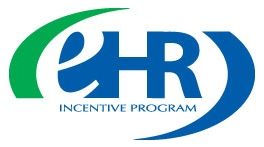Are Changes to the Meaningful Use Program Imminent?
- Blake Rodocker
- October 20, 2014

Outdated as of May 2021.
This article is outdated. Please find our updated resource that explains the current MACRA / MIPS / Meaningful Use regulations.
While CMS and ONC are busy working on the proposed rule for Meaningful Use Stage 3, healthcare organizations continue to express concerns over the stages currently in progress. Could actions being taken by healthcare groups and lawmakers be a forewarning of Meaningful Use changes to come?
Healthcare organizations have expressed qualms about Meaningful Use since the program first rolled out in 2011; and in the past, many of those complaints were heard. The Centers for Medicare and Medicaid Services (CMS) has made changes to the program on repeated occasions, pushing back deadlines, modifying reporting requirements and allowing more flexibility for participating providers.
The latest change to Meaningful Use came on August 29 when CMS announced in a final rule that providers would have an extra year to upgrade their EHR systems to 2014 Edition certified software. Spurred by the fact that many software vendors are having difficulty receiving certification and upgrading customers’ systems, CMS also announced that the Stage 3 start date was being pushed back a year to January 1, 2017, giving Meaningful Use participants more time to meet Stage 2 requirements.
Despite the changes being made to the program, however, many organizations believe that Meaningful Use still needs more work. In fact, the number of hardship exemption applications received by CMS in 2014 alone (approximately 44,000) is a clear indicator that providers are struggling to implement the required technology to meet attestation requirements. What’s more, CMS announced recently that it was reopening the submission period for hardship exemption applications, allowing more physicians to avoid next year’s payment adjustments for not demonstrating Meaningful Use.
Organizations Pushing for Meaningful Use Reform
Among the healthcare organizations advocating for Meaningful Use change is the American Medical Association (AMA). Last week, the AMA sent a letter, along with a group of other organizations, to Department of Health and Human Services (HHS) Secretary Sylvia Burwell expressing their immediate concerns with the Meaningful Use program and the usability of health IT.
“Without changes to the MU program and a new emphasis for interoperable EHR/EMR systems and HIT infrastructure,” the organizations wrote, “we believe that the opportunity to leverage these technologies will not be realized.”
The letter, which was also signed by the American Academy of Family Physicians, Medical Group Management Association, Memorial Healthcare System, Mountain States Health Alliance, National Rural Health Association, Premier and Summa Health System, also offers recommendations for improvements.
The following recommendations were made for Meaningful Use reform:
- Focus EHR certification requirements on interoperability, quality measure reporting, and privacy/security.
- Promote collaboration between stakeholders to develop health information technologies that focus on meeting clinical care needs.
- Remove restrictive Meaningful Use policies that stifle health IT innovation.
- Recognize that vendors and providers need adequate time to develop, implement, and use new technologies before continuing with Meaningful Use.
The AMA also sent a separate letter to CMS and the Office of the National Coordinator for Health Information Technology (ONC) ahead of the proposed rule for Meaningful Use Stage 3, urging that “it is necessary to pause and fully assess what is working and what needs improvement before moving ahead to Stage 3.”
The Flex-IT Act of 2014 – Reducing the 2015 MU Reporting Period
Both letters come on the heels of the Flexibility in Health IT Reporting (Flex-IT) Act of 2014, which was introduced in the House of Representatives in mid-September. The Flex-IT Act would allow providers to perform a 90-day reporting period in 2015 (similar to 2014), as opposed to the full year reporting period currently required by Meaningful Use.
With CMS reporting that just 143 hospitals and 3,152 providers had attested to meeting Stage 2 through August 25, recommendations for modifying Meaningful Use even further don’t seem unreasonable – especially when compared to the number of hospitals and providers that have successfully attested to Stage 1 (3,800 and 291,000 respectively).
It is also becoming apparent that it is the Stage 2 requirements that need the most revising. Aside from vendors having difficulties certifying their software to meet standards for Stage 2, providers are also struggling to meet patient engagement thresholds. Getting patients to use a patient portal, for example, which is required for Stage 2, can require implementing a marketing strategy and using resources that many practices and smaller hospitals simply don’t have.
Many healthcare organizations also argue that it is unjust to penalize providers for something they have no control over, such as getting patients to log in and perform a specific action in the patient portal. Whether or not CMS makes changes to the Meaningful Use program to address providers’ concerns, only time will tell.
Is Meaningful Use proving to be a burden for your healthcare organization? Tell us about your experience with the program and the changes that you’d like to see happen.